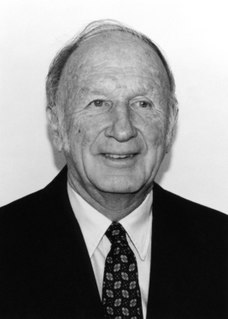A Quote by Francis Crick
If, for example, all the codons are triplets, then in addition to the correct reading of the message, there are two incorrect readings which we shall obtain if we do not start the grouping into sets of three at the right place.
Related Quotes
First shalt thou take out the Holy Pin. Then shalt thou count to three, no more-no less. Three shall be the number thou shalt count, and the number of the counting shall be three. Four shalt thou not count, neither count thou two, excepting that thou then proceed to three. Five is right out. Once the number three, being the third number, be reached, then lobbest thou thy Holy Hand Grenade of Antioch towards thy foe, who, being naughty in my sight, shall snuff it.
The big thing is, everybody says it's being in the right place at the right time. But it's more than that, it's being in the right place all the time. Because if I make 20 runs to the near post and each time I lose my defender, and 19 times the ball goes over my head or behind me - then one time I'm three yards out, the ball comes to the right place and I tap it in - then people say, right place, right time. And I was there *all* the time.
All directors on all sets behave slightly differently depending on what the scene is. For example, if you are doing a love scene, which is intimate then the director is likely to be intimate. If you are doing a scene where everyone is mucking around and laughing then the director is likely to start with that. If you are playing a scene which us incredibly heavy and everyone getting killed then there are probably not many laughs on the set.
I doubt if I shall ever have time to read the book again -- there are too many new ones coming out all the time which I want to read. Yet an old book has something for me which no new book can ever have -- for at every reading the memories and atmosphere of other readings come back and I am reading old years as well as an old book.
Now, everybody knows the basic erogenous zones. You got one, two, three, four, five, six, and seven. ... OK, now most guys will hit one, two, three and then go to seven and set up camp. ... You want to hit 'em all and you wanna mix 'em up. You gotta keep 'em on their toes. ... You could start out with a little one. A two. A one, two, three. A three. A five. A four. A three, two. Two. A two, four, six. Two, four, six. Four. Two. Two. Four, seven! Five, seven! Six, seven! Seven! Seven! Seven! Seven! Seven! Seven! Seven! Seven! Seven! [holds up seven fingers]

































